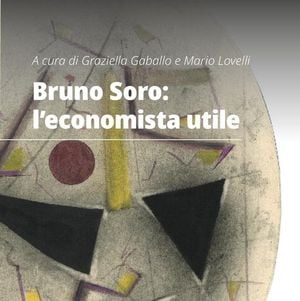Friedrich Merz, the newly elected Chancellor of Germany, has a family story that is both inspiring and poignant. His wife, Charlotte, and their three children, each with impressive careers, form a supportive backdrop as he embarks on his political journey.
Charlotte Merz, born in 1961 in Saarland, met Friedrich at a law students' party at the University of Bonn in 1980. Their romance blossomed quickly, leading to marriage in 1981 when Charlotte was pregnant. Reflecting on their early days, she shared with the BILD newspaper, "It was love at first sight, but it took a bit longer for him to realize it." The couple now has three children and seven grandchildren.
Charlotte's professional journey has been equally impressive. After moving to Arnsberg in 1994, she became a judge at the local court and has served as its director since 2016. Despite her husband's new position as Chancellor, Charlotte plans to continue her work, stating, "I intend to carry on with my life in Sauerland, with my job as a judge and local court director. I want to commute to work as usual every morning." Together, they have also established the Friedrich and Charlotte Merz Foundation, which aims to promote education and training, particularly through school projects aimed at reducing dropout rates.
The couple's eldest child, Dr. Philippe Merz, born in 1981, is a philosopher specializing in economic philosophy and digital ethics. He founded the Thales Academy in Freiburg in 2013, where he also serves as managing director. Philippe tends to keep his personal life private, focusing on his academic pursuits.
Friedrich and Charlotte's daughter, Carola Clüsener, followed in her parents' footsteps by studying law and becoming a successful lawyer. The youngest daughter, Constanze Merz, works as a surgeon, and her husband is also in the medical field. The Merz family, with its blend of legal, medical, and philosophical expertise, showcases a strong commitment to public service and education.
However, the path to the Chancellorship has not been without its challenges. Merz was not elected Chancellor on May 6, 2025, amid notable absences at the election ceremony. His son Philippe, who he hoped would witness this significant moment, was absent, which reportedly pained him. Other notable figures, including former Chancellor Gerhard Schröder and Bavarian Prime Minister Markus Söder, were also missing from the event, raising eyebrows and sparking discussions about the implications of their absence.
Merz's family history is marked by tragedy, having lost two siblings at a young age. In February 2025, he revealed the heartbreaking details of these losses, stating that his youngest sister died in a traffic accident at just 21 years old. His younger brother succumbed to multiple sclerosis before he turned 50. These personal tragedies have left deep emotional scars on Merz and his remaining family members, particularly affecting their parents, Joachim, 101, and Paula, 96, who reside in a retirement home but remain active and engaged.
As Friedrich Merz steps into his role as Chancellor, the support of his family, including Charlotte, their children, and grandchildren, is likely to be a source of strength as he navigates the complexities of political leadership. The Merz family's commitment to their careers and each other exemplifies a blend of personal dedication and public service that will undoubtedly influence Merz's tenure.
In the world of politics, where public perception can shift rapidly, the Merz family's story—rooted in love, loss, and resilience—serves as a reminder of the human element behind the political facade. As Friedrich Merz embarks on this new chapter, he carries with him not just the weight of his responsibilities but also the enduring support of a family that has weathered both triumphs and tragedies together.





